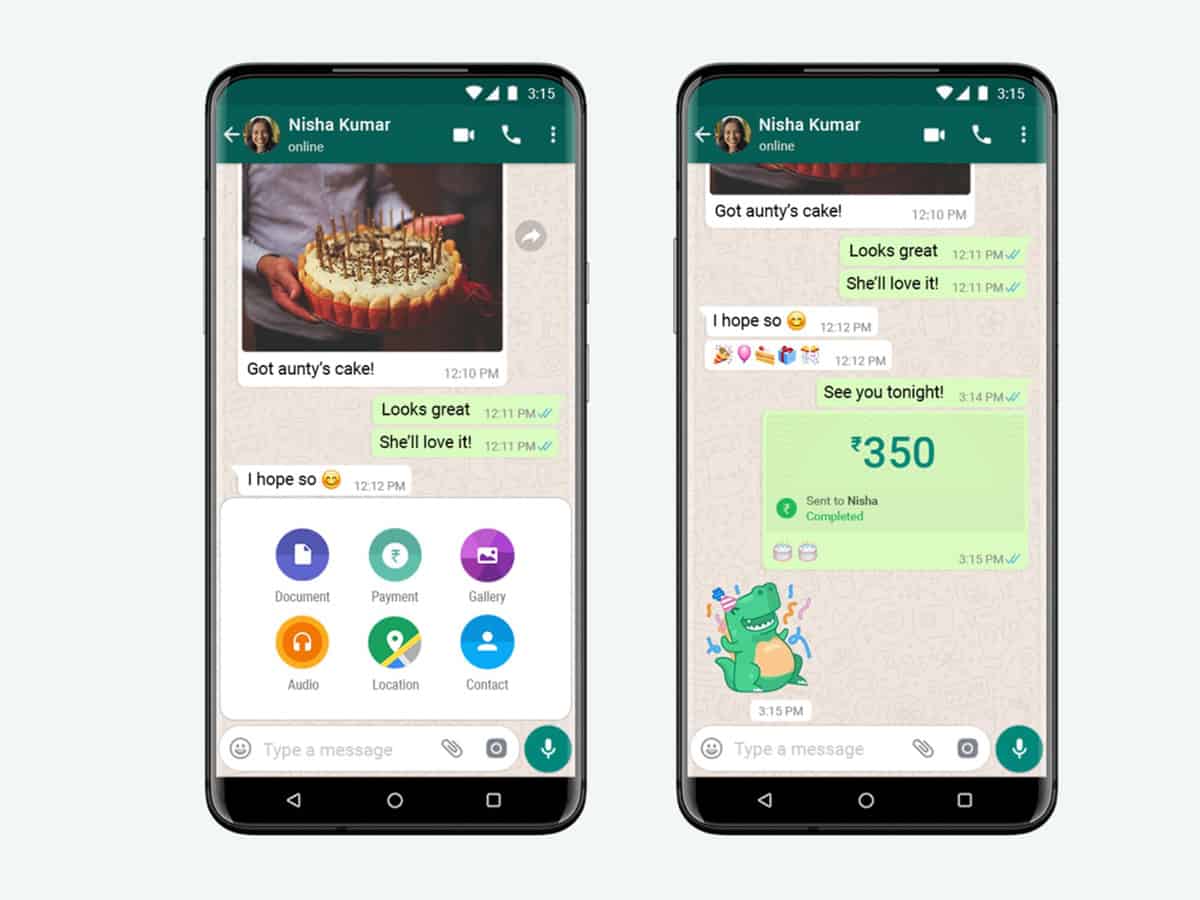New Delhi: Facebook-owned WhatsApp, which kicked off its ambitious peer-to-peer (P2P) digital payments pilot project in India in 2018 with nearly 10 lakh users, has failed to make it a success ever after more than three years of its inception, as the transaction value of Unified Payments Interface (UPI) payments continues to break all records in the country.
In the month of September, 3.65 billion transactions worth Rs 6,54,351 crore were recorded. Major UPI players in India currently are PhonePe, IPO-bound Paytm and Google Pay. PhonePe continues to dominate transactions — almost half the market size at 47 per cent, followed by Google Pay at 35 per cent.
The current figures are dismal for the Mark Zuckerberg-run platform. The late entrant WhatsApp currently has a mere 0.01 per cent share of the UPI payments volume, according to the latest NPCI data.
After facing regulatory roadblocks and data compliance issues with the Reserve Bank of India (RBI) for more than two years, WhatsApp finally went live with the UPI payment service in India in November last year, after receiving a nod from the National Payments Corporation of India (NPCI).
The Facebook-owned messaging service had received approval from the NPCI to take UPI live in a phased manner.
WhatsApp Payments is still restricted to the cap of some 2 crore users in the country, the growth has stalled and numbers evidently paint a sorry picture.
What has failed WhatsApp, which has more than 40 crore users in India, to fast-track its payments feature in a country, dominated by the likes of Paytm, PhonePe and Google Pay?
Industry experts feel it is a mixed bag, led by the heated political debate on the security of key financial data, latest Facebook data-sharing row, insufficient messaging for its users and uncertainties over the regulation landscape.
“WhatsApp Payments needs to be seen with microscopic eye, primarily because in payment you will be dealing with sensitive personal data and cyber security is going to be an essential building block component for WhatsApp to demonstrate its due diligence,” Pavan Duggal, one of the nation’s top cyber law experts, told IANS.
Prabhu Ram, Head, Industry Intelligence Group (IIG), CyberMedia Research (CMR), said that for India, WhatsApp has been the de facto messaging app of choice for long now.
“Leveraging WhatsApp’s reach and scale in other spheres, such as mobile payments, would seem an easy and natural step forward for the platform. However, WhatsApp’s strong brand resonance around messaging is hindering WhatsApp’s uptick in payments,” Ram told IANS.
A case against WhatsApp Payments is still pending in the Supreme Court for compliance of data localisation as per the RBI’s April 2018 circular. The Centre for Accountability and Systemic Change (CASC) had taken WhatsApp to the court.
The data protection debate has reached its nadir in India in the last couple of months, and the government, the RBI and the NPCI are constantly evaluating the risk of allowing social media apps into the digital payment ecosystem.
In such ‘trust deficit’ times, it is all the more difficult for WhatsApp to cement its position in the digital payments space.
WhatsApp on Thursday unveiled the Indian rupee symbol in its chat composer to make sending payments using its platform easier for users in India.
According to the company, with these latest updates, Payments on WhatsApp will become more inclusive and intuitive.
‘Bharat’ needs simple solutions that remove the friction to learn ‘How to Pay’, an inclusive product that is simple, relatable and easy to access for rural and urban users alike and a platform like WhatsApp that they can trust, to drive adoption, said Manesh Mahatme, Director (Payments), WhatsApp India during the Global FinTech Festival (GFF) 2021.
He said that the company is “scaling up in a phased manner right now” and “we are partnering with the NPCI to work through this scale”.
The platform is also reportedly working on a feature for payments called ‘cashback’ for its Indian users. The users will be able to receive cashback by using WhatsApp Payments after 48 hours.
However, the road to success is still too far for WhatsApp Payments in a country that is fast growing in digital transactions.
“To succeed in a hyper-competitive digital economy, WhatsApp would need to invest in understanding evolving consumer perceptions, and leverage that for creating user awareness and understanding around new WhatsApp use cases,” said Prabhu.

